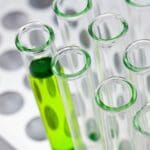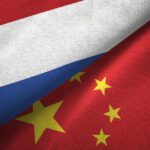Did you register for NWO CHAINS? Then don’t forget to add our 2 focus sessions to ‘your favorites’. The full programme is now available. See you @NWOCHAINS!
7 december 14:15 – 15:30CET
“Sustainability in chemistry: more than CO2 reduction”
Chair Robert Terörde – Chair programme council CCPTS – BASF
From bicycle to bicycle: circularity in action
Prof. Francesco Picchioni –Department of Chemical Engineering – University of Groningen and Tom Hallowes, Disrubt BV
The recycling of rubber is one of the most pressing, relevant, and urgent challenges that society faces today. In this creative presentation, we showcase an example of sustainability and circularity in action. Used and waste bicycle inner-tubes are now recycled through a novel patented technology that yields a thermoplastic elastomer with thermal and mechanical properties suitable in making unique bicycle crates for consumers. These bike crates are both sustainable and circular and can be reprocessed as pure thermoplastics without any relevant changes in material properties. Simply put; “What goes around, comes around”.
Back to chemicals – Plastic waste as a resource
Ina Vollmer ARC CBBC (UU) and Dr Lukasz Karwacki – BASF
Decades were spent on refining the properties of plastics for various applications just to have it burned or landfilled after use, but there are also ways to revert the polymer making process so that plastic waste can be used as a resource for valuable chemicals. Plastics are in essence a concentrated carbon source, a more clean form of crude oil. However, there is a great need for research into new or improved processes to do this. In addition, industry needs to commit to these technologies to make them economically viable.
Interactive inspirational session: How can chemists play a role in promoting sustainable chemistry?
Robert Terörde or Peter Berben – BASF
In an interactive session we aim to inspire young scientists and to involve them in the development of chemical reactions and processes that can contribute to a sustainable and healthy society. The session will start with an inspirational introduction about industrial targets and their responsibility in sustainability. The audience is invited to discuss the opportunities that scientists have in this regard.
8 december 10:20 – 11:35CET
“(Smart) chemical sensing technologies for the future”
Chair Dr Oscar van den Brink – ChemistryNL
PPP Real-time biomolecular sensing for industrial process control
Prof. Menno Prins and Claire Michielsen (TU/e)
We will present a project that develops a real-time biomolecular sensing technology for industrial process monitoring. The PPP includes Eindhoven University of Technology, Avebe, FrieslandCampina, Metrohm and Helia Biomonitoring and is funded by the three Topsectors Chemistry, Agri&Food and High Tech Systems and Materials. The sensors can monitor concentration levels of key molecules in the millimolar to picomolar range and developed algorithms will allow real-time control and optimization of industrial food manufacturing processes.
Illicit drug detection using a spectroscopic analytical platform
Ruben F. Kranenburg – Dutch Nat. Police, UvA and Dr Henk-Jan Ramaker – TIPb
The illicit-drug market drastically changed in the last decade. As a result, the capacity for analytical testing and forensic investigation is under pressure. Police authorities require fast and reliable methods that can detect a broad scope of potential illicit substances directly on-site. The portable Powder Puck analyzer based on near-infrared spectroscopy was developed as part of an analytical platform. This platform ensures robustness, accuracy and scalability. These functional demands are vital for acceptance within the demanding field of forensics. Well-designed tests and experiments show the analytical platform is a promising candidate for reliable detection of cocaine and MDMA.
Brainstorm: Health sensing, to know or not to know
Prof. Leo Koenderman UMCU
How do you define health? And what health characteristics would you like to sense and why? Do you really want to know everything? And who will benefit most from this information? Be inspired and think along during this brainstorm session!
Personalized health technologies are growing in popularity and become more and more accessible to the wider public as chemical sensing technologies are made ‘smart’ by digital tools. During this interactive session the audience is invited to brainstorm with prof. Koenderman about the possibilities of smart chemical sensing technologies for the future, but also about the scientific challenges, such as data interpretation, and ethical considerations.




